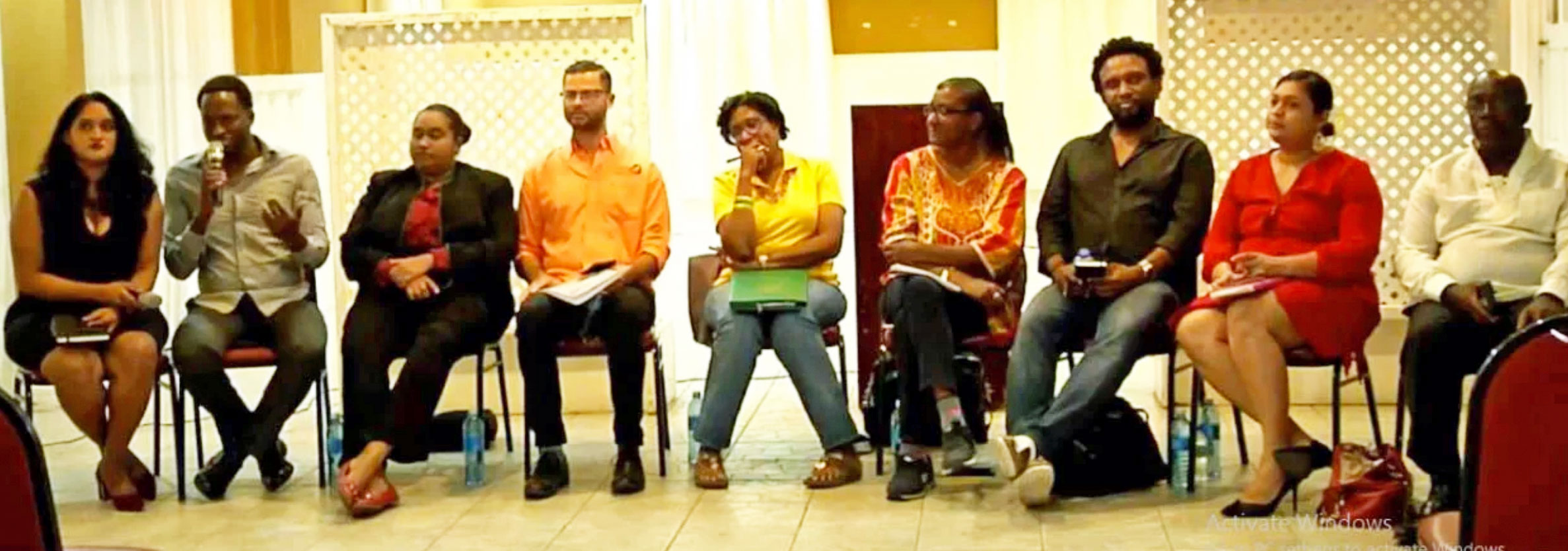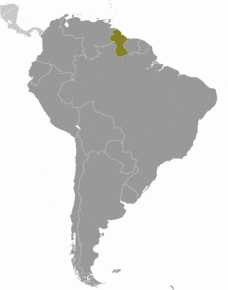Guyana accusation: Politicians have gay sex but won’t repeal anti-gay law
Colin Stewart is a 45-year journalism veteran living in Southern…

Politicians were divided between opponents of the law against same-sex intimacy and those who declared that the issue should be decided by popular consensus.
LGBTQ rights activists argue that human rights should be guaranteed, not left to the whims of the public opinion.
Stabroek News reported on the political forum:
Ruel Johnson lashes out at hypocrisy on gay sex question
The Citizenship Initiative’s (TCI) Ruel Johnson yesterday lashed out at hypocrisy in the political directorate on the question of decriminalising gay sex.
He was speaking at a forum at the Georgetown Club addressing issues in the LGBT community to which political parties contesting the March 2nd general elections were invited. He and other representatives of the parties were responding to a question on whether they have a specific plan to repeal Section 353 of the Criminal Law Offences Act or if they plan to champion the issue on the inside or outside of parliament.
The question was asked by President of the Guyana Press Association Nazima Raghubir, who was at the time co-moderating the forum, which was organised by the Society Against sexual Orientation Discrimination (SASOD).
Party representatives present, inclusive of those representing the two major political parties, said they believed that Guyana is at a stage where it can make amendments to the law to decriminalise the act and improve its support to the Lesbian, Gay, Bisexual and Transgender (LGBT) community. They also said that a consensus among citizens and political will were necessary for the process to go ahead.
Johnson, when it was his turn to speak, said the change in law “has to take political courage and say this is nonsense.”

He noted that the fact that the act remains a criminal offence is hypocrisy since past and present political administrations have members who are engaged in same sex intimacy.
“There is hypocrisy in keeping this law in place and that goes to the heart of political parties who had members and currently have members who are engaging in same sex [relations] but for whatever would not repeal the act,” Johnson argued.
Kian Jabour, of A New and United Guyana (ANUG), said should his party receive a seat in parliament, they will be using the opportunity to push for the change.
Jabour stated that international human right bodies have already paved the way for the anti-buggery laws to be repealed from the books, making it easier for Guyana to move forward.
“Basic international human rights organisations have already put this in place and what is the needed to done. We don’t have to reinvent the wheel,” Jabour argued as he stated that his party will be a driving force in parliament should the opportunity present itself.
Presidential Candidate of The New Movement (TNM) Dr Asha Kissoon, however, said her party believes it is the population which should decide on whether the law should be repealed or not.
“We fully support human rights… but TNM does not agree [to] repeal this law. We will not. We leave it to our population to decide what is best for them. We cannot support 100 per cent after meeting with SASOD [the Society against Sexual Orientation and Discrimination],” she said, while announcing that the party’s position is not definite.
Minister of Public Telecommunications Cathy Hughes, who represented the governing APNU+AFC coalition, acknowledged that the law needed to be changed but highlighted that given Guyana’s multi-religious background, it would be a challenge to have the changes implemented.
“We have not been able to work together as a country. There have been attempts to have discussions and add sexual orientation into our agenda… but you have… so many sections of religious groups that have come down with a tonne of bricks. So we need to find a mechanism. Yes, it needs to be changed but how do you implement and bring that change?” Hughes questioned.
She explained that there have been attempts in the past by trying to start the discussion on the amendment of the law but they have not been successful. Hughes stated that more civil society groups and human rights organization need to play a part and assist in starting the conversation on decriminalisation.
She also pointed out that a single political party cannot change the law on its own and will need the support from other parties.
Forefront
In her response, she applauded SASOD for being at the forefront and bringing issues that affect the LGBT community to the table to start much needed conversations.
Meanwhile, opposition PPP/C representative Priya Manickchand said Guyana is ready and at a place where discussions should start on decriminalising the act. She, however, noted that the population needs to be educated on the matter to spark their interest and gave their consent.
“[An] active advocacy we need across the country for the people to understand what it is we are doing. I think our population is receptive to hear about changes. We need to go into communities and speak with people and then that would be an easy consensus to reach,” Manickchand said as she referenced the work done to gain consensus in passing the Sexual Offences Act.
She also stated that education plays an integral role in convincing the nation to be open to changes and it is an important aspect in this case.
“We have to be progressive in educating the people in reaching that consensus. I have seen pieces of legislation in the Sexual Offences Act that we never would have thought passed in the parliament but if we didn’t have a type of education around the country… By the time the act had gotten to the National Assembly the nation would have been behind it,” she stated.
The former education minister added that the decriminalising of the act only speaks to same sex partners who would have given their consent to their partners. “We speak here of same sex consenting adults. Anything that is not consensual will amount to rape, regardless of what the genders are,” she said.
Rawle Abrams, of the United Republican Party, also stated that consensus is important to making important changes to the law. He said his party, if given the opportunity to get into parliament, will seek the consensus of the population before making any changes to the law.
Yvonne Cole, of the Liberty and Justice Party, in her response said a third force in parliament along with educating the population are needed to decriminalise the sexual act, which she referred to as “love making between two consenting adults.” She, too, pledged her party’s support for changing the law.
“The gay community heard it before over and over that when we get in there we will do it You have to make sure that this time it is not just the same status quo, we need that third party in there to make sure things get done,” Cole said.




